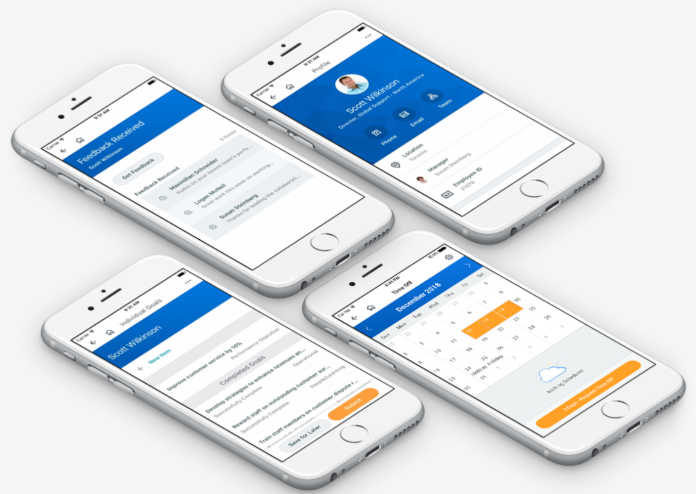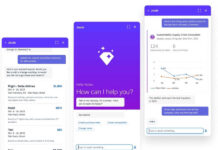
The story of Workday’s fourth quarter includes big customer wins and notably increased revenue. Now comes word the HR and finance solutions provider is aiming to grow sales from $2 billion to $10 billion over the next six years.
According to Bloomberg, CEO Aneel Bhusri announced that target during a company meeting in the company’s headquarters town of Pleasanton, Calif. “We can get there,” he told more than 2,000 enthusiastic employees. “It’s achievable under almost any scenario.”
.@Workday gets fair hearings from an increasing number of enterprises. But it faces significant obstacles in its quest to hit $10 billion in sales. #HR #HRTech #HRBusiness Share on XTo be sure, Workday’s gathered strong momentum, as its fourth-quarter earnings report illustrated. Revenue increased 35 percent to about $789 million. Subscription revenue rose $673.5 million and professional services revenue climbed 24 percent to $115 million. It added Caterpillar, Sumitomo Chemical and Wyndham Destinations as customers for its HCM product. The company also said its customers include 40 percent of the Fortune 500.
“As we look ahead, we hope to extend our long-term position as an industry leader by staying focused on our vision of a unified approach to planning, execution, and analysis, and on our ongoing commitment to our core values including employees, customer success, and innovation,” Bhusri wrote in the company’s annual report.
Workday seems to be getting fair hearings from an increasing number of enterprises. However, it faces two significant obstacles in its quest to hit $10 million in sales. The first is the ingrained reluctance of corporations to switch away from established accounting solutions such as Oracle and SAP. The second is the Oracle seems determined to beat Workday’s sales efforts at every turn.
Customer Inertia
“The biggest challenge for Workday is inertia,” Bloomberg Intelligence Anurag Rana told Bloomberg News. Because accounting systems are “the heart and lungs” of operations, most corporations hesitate to move from their established SAP or Oracle systems to a cloud-based solution like Workday.
To combat that reluctance, Workday has developed a customer service operation that Rana says may be its most valuable sales tool. While the company plays nice with its customers, Bloomberg said, its rivals often insist on complex contracts and pressure clients to upgrade their systems whether or not they actually need to.
And while both SAP and Oracle compete hard for finance and HR business, customer executives say Oracle takes a particularly bare-knuckle approach whenever it goes up against Workday.
That doesn’t surprise anyone who follows the business. There’s no love lost between Oracle Chairman Larry Ellison and Workday’s co-founders Bhusri and David Duffield. Before starting Workday, they ran the HR software developer PeopleSoft, which Oracle acquired in a long and bitter hostile takeover.
On the ground, that reportedly translates to Oracle offering aggressive deals to organizations who have Workday on their shortlist. In addition, Oracle’s been said to roll out the big guns—including co-CEO Mark Hurd—to woo prospects away from Bhusri and Duffield. “We’re killing Workday” in accounting software, Ellison told Oracle’s December earnings conference call. Bloomberg says both Oracle and SAP have made it a priority to keep their enterprise customers from switching away.
Oracle’s case hasn’t been helped by grousing from some customers who claim the company isn’t delivering on its promises. In February, Pennsylvania-based Worth & Company sued Oracle for a refund and damages after spending $4.5 million on a failed three-year ERP implementation effort. Just a week before, two investors filed suit against the company, alleging it had misled stockholders about its cloud business.
SAP’s been on the receiving end of serious criticism, as well. In 2018, SAP consulting firm Resulting IT said only 36 percent of the companies it surveyed thought their SAP project stayed on-course. Meanwhile, 48 percent thought they’d failed to achieve business objectives.
Dynamics in Workday’s Favor
Workday certainly isn’t perfect. We’ve heard users complain that it takes a somewhat rigid approach to many tasks, for example, and that completing relatively simple tasks such as generating reports is complicated and frustrating.
And, to be fair, Oracle and SAP are both 800-pound guerillas that routinely take on complex global projects. That means they’re particularly easy targets for criticism on everything from their sales and implementation practices to the solidity of their software.
Whether it’s fair or not, that dynamic gives Workday an opening, and the company shows every intention of taking advantage wherever it can. To keep it at bay, Oracle and SAP may have to up their game in sales, messaging, customer service and their products’ approach to the cloud.
Sign up for our newsletter here.
Image: Workday















